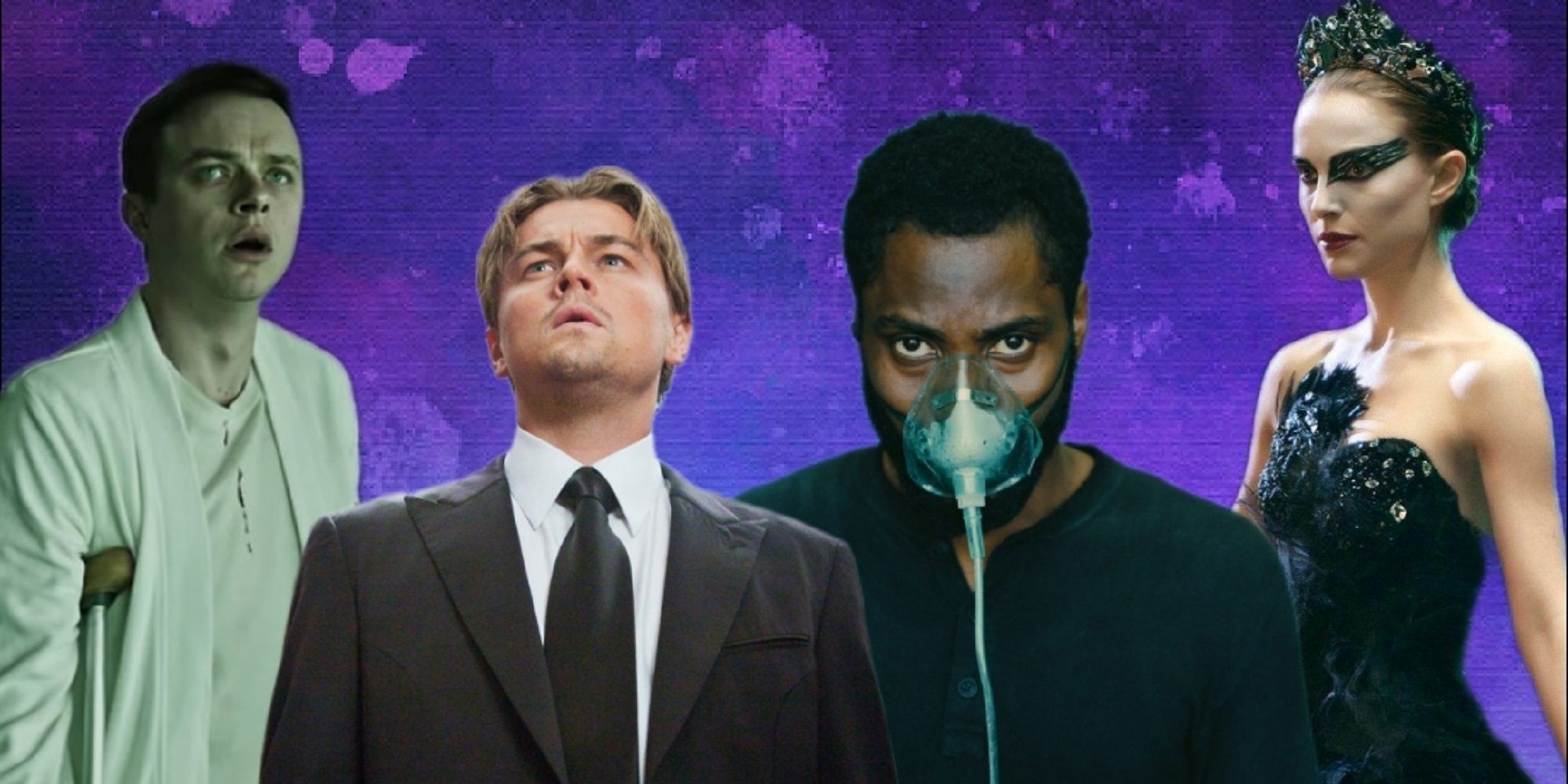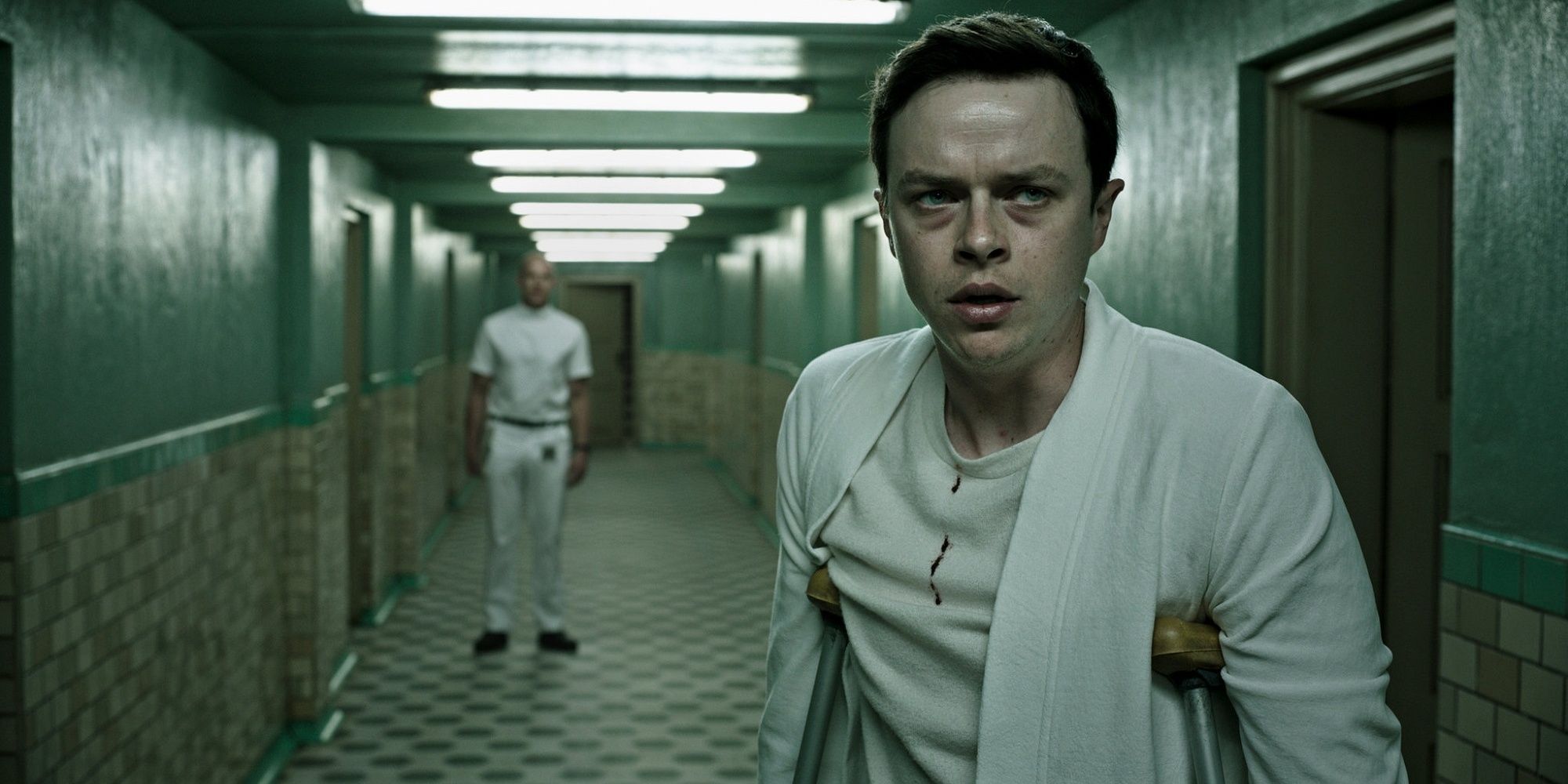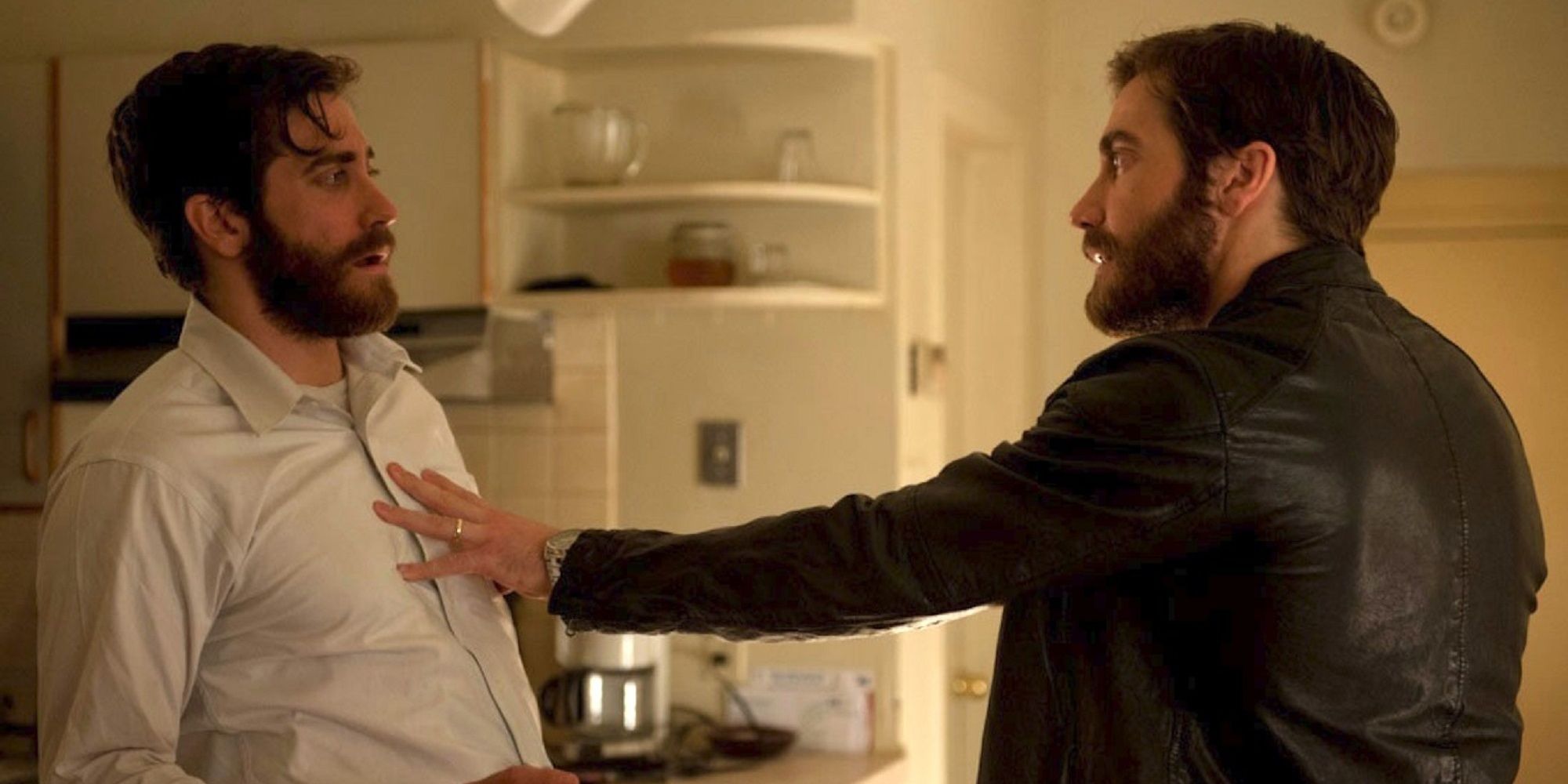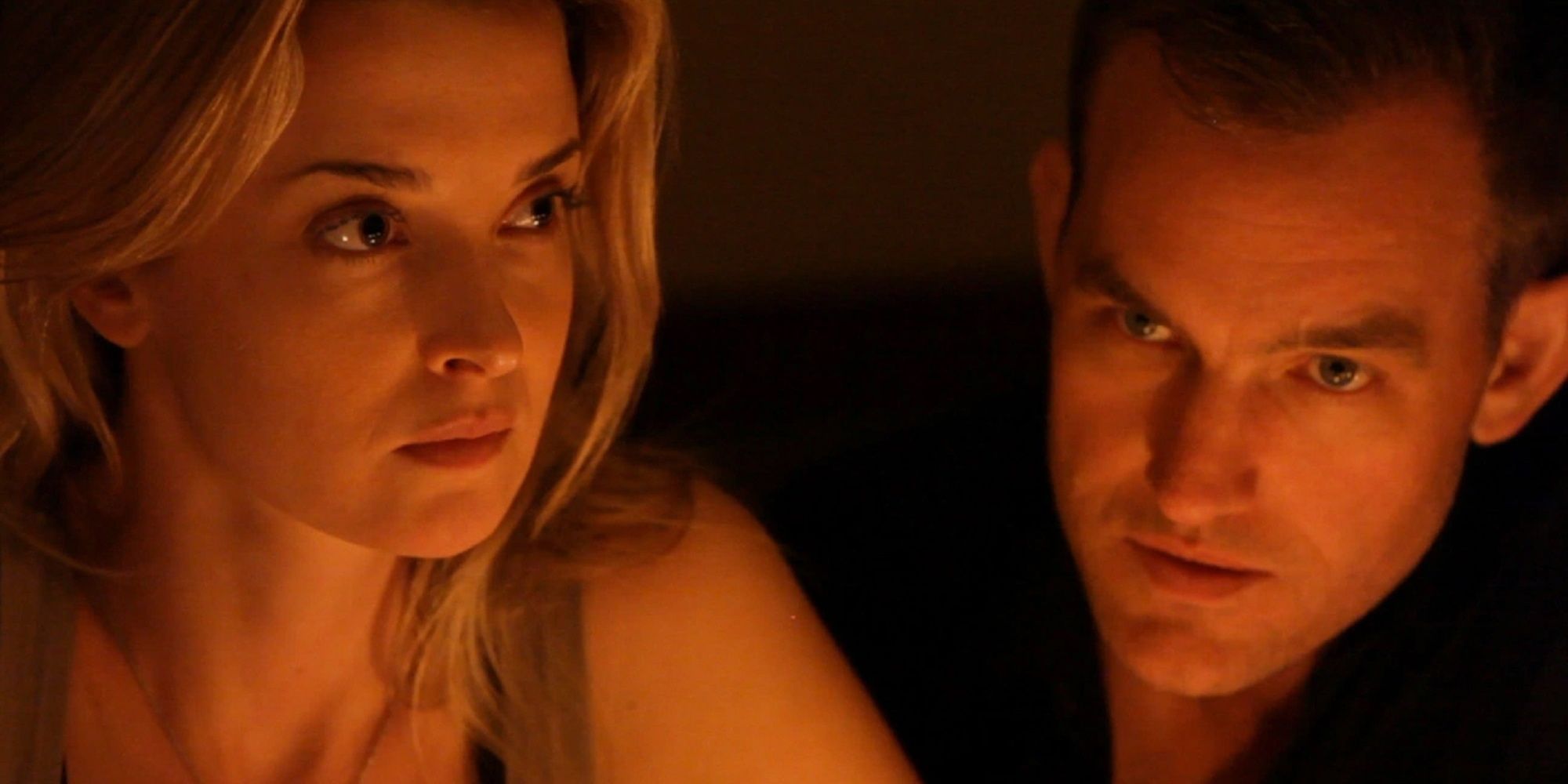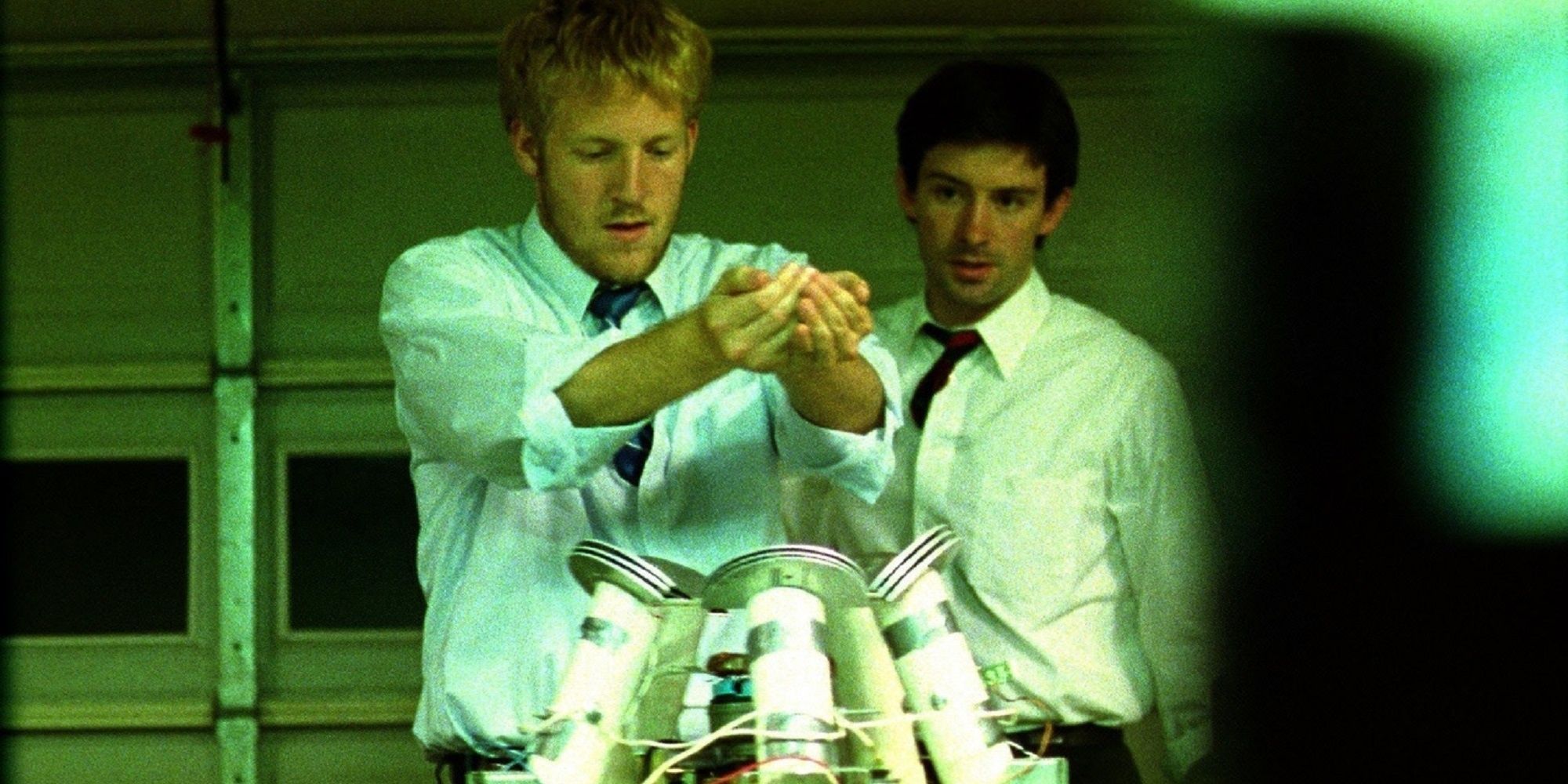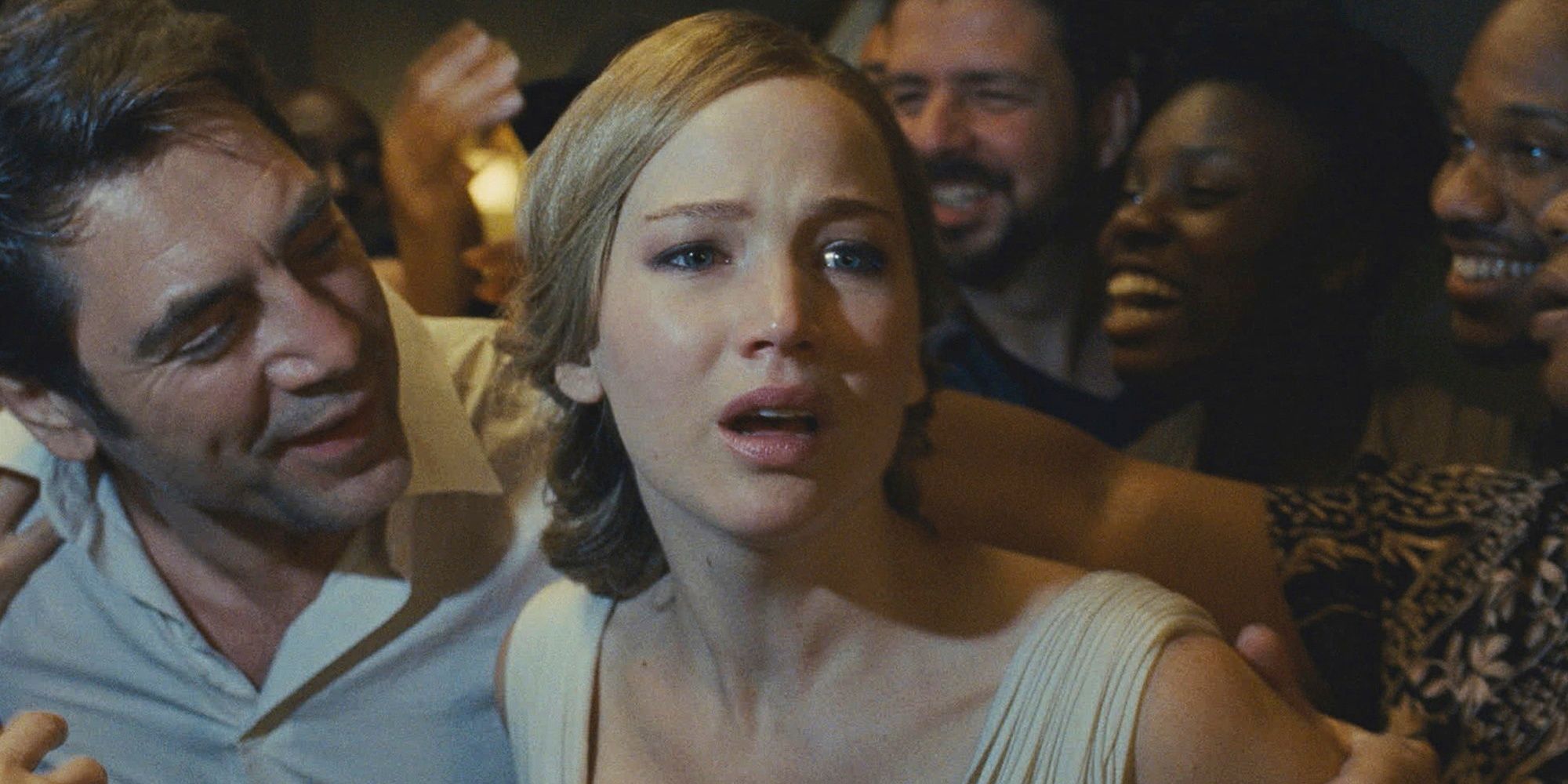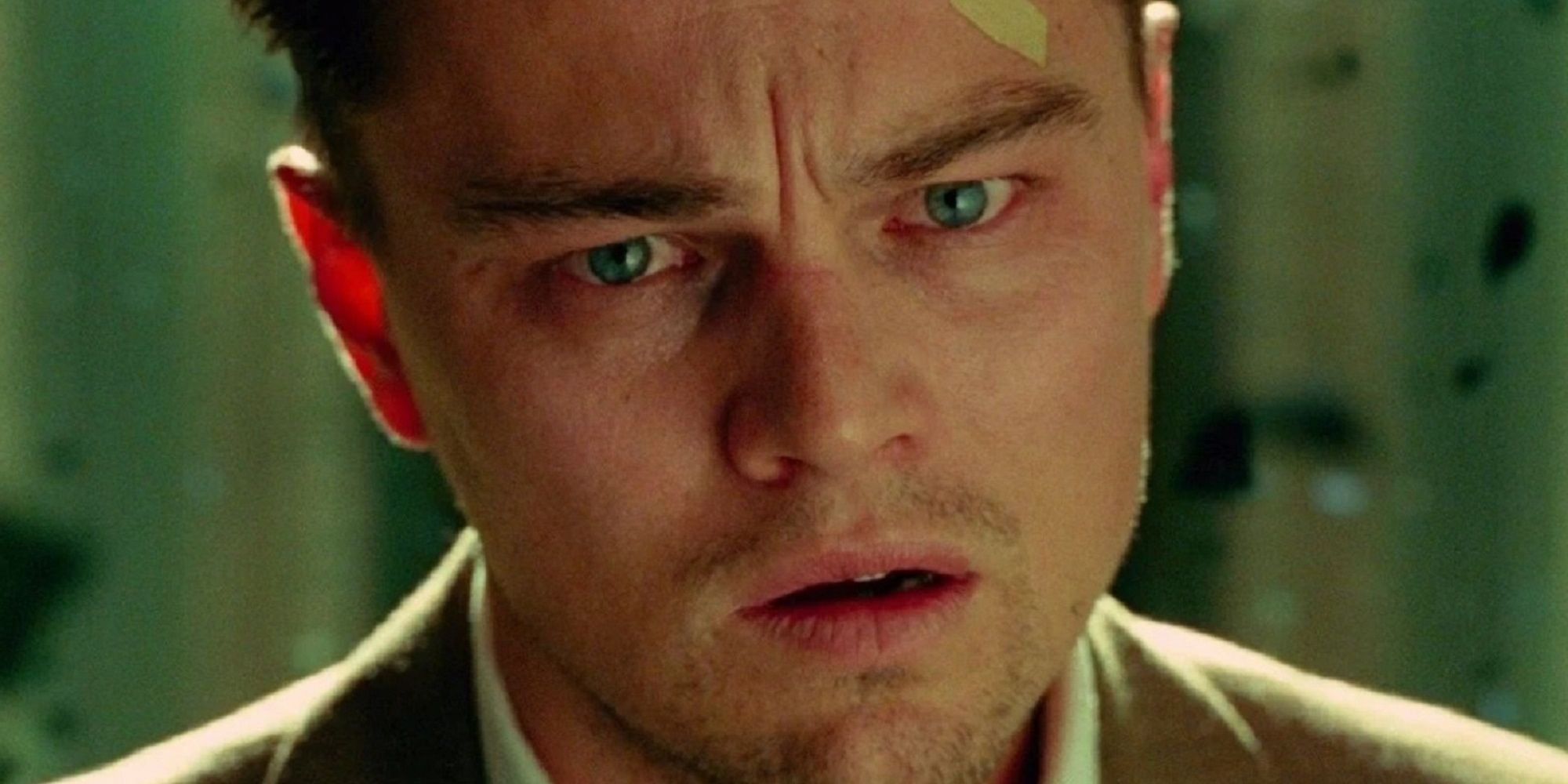For most movies, a defined and direct ending is a pleasant way to wrap up the experience. After the journey takes our heroes through scores of conflicts, complications, and drama, it is nice to have a happy conclusion.
Many directors seem determined to make their audiences scratch their heads for days, even decades, after the credits roll. Many of them purposefully make movie endings that are left up to audience interpretation, imprinting them into your memory forever. Ambiguous endings can be enjoyable, too, leading you to dig further into the film.
This article contains spoilers for each film entry.
'Tenet' (2020)
Tenet is a film that doesn't deserve a rewatch; it requires it. It is one of the most ambitious and complex story structures of Christopher Nolan's notoriously non-linear films. He is known for making films shrouded in existentialism and themes about the concept of time. Tenet served them both on an enigmatic platter. Even one of the film's stars, Robert Pattinson, spoke out about how he didn't understand the movie's plot while filming.
Tenet's first watch is downright hard to follow. The Protagonist, played by John David Washington, is taken to an organization that teaches him how to manipulate the flow of time to prevent a catastrophic attack from the future. Upon subsequent watches, the plot comes together nicely to show how far The Protagonist's impact reached. It is revealed that he is the one who started the Tenet organization in the first place at some point and ultimately recruited himself.
'A Cure for Wellness' (2016)
A Cure for Wellness gives you the feeling of existing in a waking nightmare that continuously gets more suffocating. A Wall Street stockbroker, Lockhart (Dane DeHaan), travels to an isolated Swiss wellness center to retrieve his CEO. The mysterious patients are not who they seem, though. His sanity is tested as he unravels the spa's horrifying secrets.
The movie ends with a memorably sinister smile on the protagonist's face that left audiences to wonder if the Baron was transferred into him during the climax. It's challenging to figure out who's who among an eccentric set of characters that are seemingly dead one moment and then not. In the end, though, Lockhart is seemingly “cured,” as he leaves behind a life of riches and a horrible job for a life of freedom.
'Enemy' (2013)
Denis Villeneuve is no stranger to complex endings that allow you to interpret them how you like. Jake Gyllenhaal played Adam in Enemy, a seemingly mellow college professor who comes across a man who looks exactly like himself. He begins to stalk the man and learn about his life, leading to a deadly rivalry.
The spider in the closet at the end of Enemy remains one of the most confusing conclusions in cinema. Many prefer to take it literally, while others take it more metaphorically and believe that the spider that Adam sees is a symbol of both order and chaos: it symbolizes his self-destruction and complications with relationships.
'Inception' (2010)
Not knowing if Leonardo DiCaprio is still in a dream or not at the end of Inception has haunted the world for more than a decade now. The movie is home to blurred lines between reality and dreams, life-changing regret, and some of the best and most complex action sequences of the early 2000s. It cemented Christopher Nolan as one of the best visionary directors of our time.
The movie takes the seemingly simple premise of stealing people's secrets from their minds and turns it into an architectural nightmare where people become lost in dreams. DiCaprio plays Cobb, who has one last job to complete to return home to his children. The movie devolves into layers of confusing dream-hopping and not knowing whose mind you're in at any given moment.
'Black Swan' (2010)
Black Swan follows Nina (Natalie Portman), a ballerina whose passion for dancing rules her entire life. She'll do anything to get the part of the prima ballerina in the opening production of “Swan Lake.” Her competition comes in the way of a newcomer named Lily (Mila Kunis), who perfectly portrays the Black Swan.
Nina's dark side emerges as their friendship turns into a sadistic rivalry. The ending becomes confusing during a shocking twist of events when Nina realizes she didn't kill Lily in her dressing room but stabbed herself in the stomach during her breakdown. It is revealed that Nina is a perfect unreliable character, and rewatching the movie comes as a satisfying surprise.
'Coherence' (2013)
Coherence blends the surreal science fiction and psychological thriller genres perfectly to get an incredibly smart movie. The film tells the strange story of eight friends who come together at an innocent dinner party. The group begins to experience a dark and troubling chain of events after a comet passes by.
The friends begin to question what is real or not, and they eventually figure out that there are different realities that they can explore. Playing with quantum mechanics and reality is always a confusing subject in movies. Many leave Coherence wondering whether it was just a dream, the result of drugs, or if the characters saw multiple realities interacting with each other.
'Primer' (2004)
Primer still stands as one of the most complicated stories told in cinema. It is not just a film but a convoluted puzzle for you to figure out and watch multiple times. Regardless, the movie went on to gain a cult following, and for good reason.
In the movie, engineers Aaron (Shane Carruth, who also directs) and Abe (David Sullivan) build and sell technology. They accidentally invent a time machine one day, put the device to the test, and discover the awful consequences of their actions. There are multiple versions of the main characters, and the plot becomes complex as the time-traveling antics go on. To make matters more complicated, the scenes in the movie are not in the chronologically correct order.
'I'm Thinking Of Ending Things' (2020)
Lucy (Jessie Buckley) goes on a road trip with her new boyfriend Jake (Jesse Plemons) to his parent's home. She doesn't necessarily want to go, though, and questions herself the entire trip. When they arrive at the family's secluded farm, a very creepy evening ensues, where Jake's parents undergo multiple physical transformations throughout the night.
The movie plays with identity, memory, idealization, and the regrets of an imperfect life. Many people take the film at face value and become confused by the utter strangeness of it all, with long, drawn-out monologues, physical metamorphoses, and abrupt scene changes. At the movie's core is a beautiful, tragic story of one man confronting the failures of life that he fantasized about.
'mother!' (2017)
Many go into watching mother! having no idea what it's about, and still have no idea what it's about by the end of it. Darren Aronofsky built a movie around biblical and environmental themes that retell the story of the Book of Genesis in a terrifyingly bizarre way.
The movie follows a young woman (Jennifer Lawrence) who spends her days in an old home with her novelist husband (Javier Bardem. One day, a stranger knocks on their door and letting him in leads to the destruction of their lives. By the time the movie comes to an end, there have been scenes of trauma and rebirth, and most are left confused by the disturbing escalation of violence. The film is an entire fever dream of allegory, though, and is not to be taken literally.
'Shutter Island' (2010))
Shutter Island follows a U.S. Marshal, Teddy (Dicaprio), and his partner as they are sent to an asylum to investigate the escape of a brilliant murderer who seemingly vanished into thin air. As the investigation deepens, Teddy realizes his deepest fears and darkest secrets.
Shutter Island is one of the best dark mysteries of the past few decades and perfectly uses foreshadowing to show the protagonist's fragile mental state. The balancing act of a twist ending is hard to pull off, but Martin Scorsese did it with ease. Many choose to believe that Teddy had a lobotomy at the end, while others think that he faked his illness to absolve himself of the guilt of his crimes.

